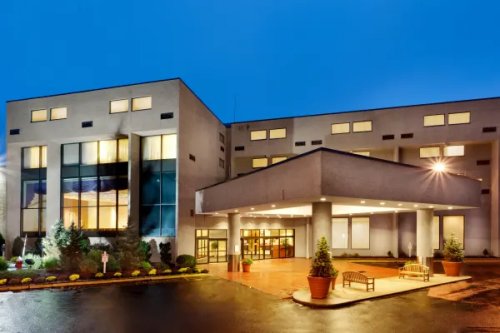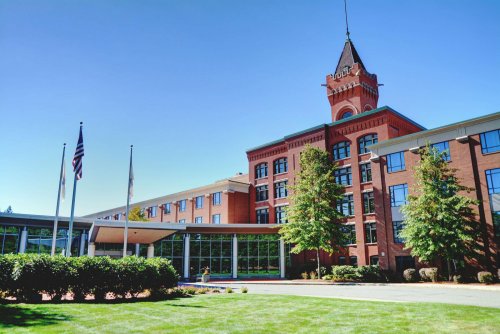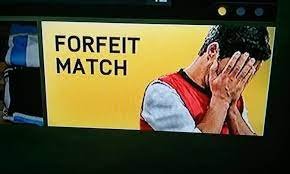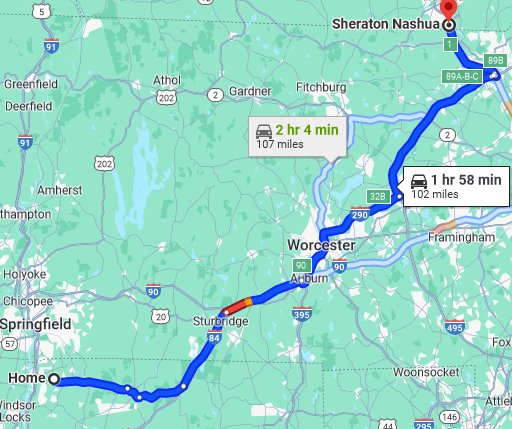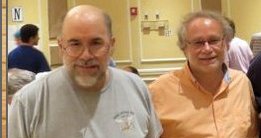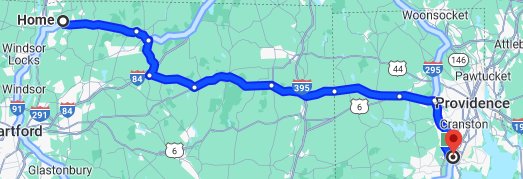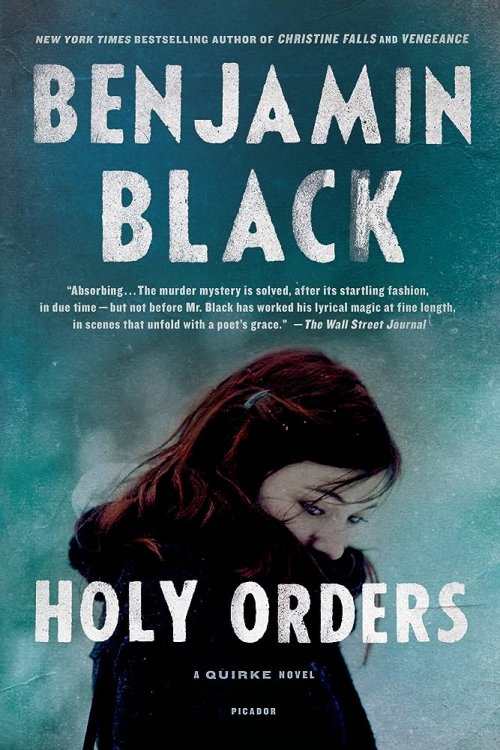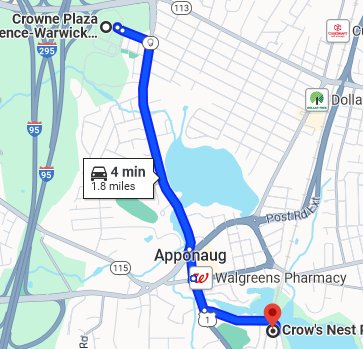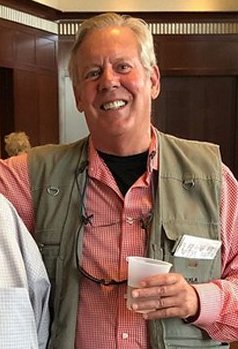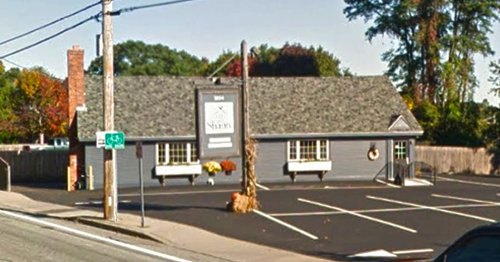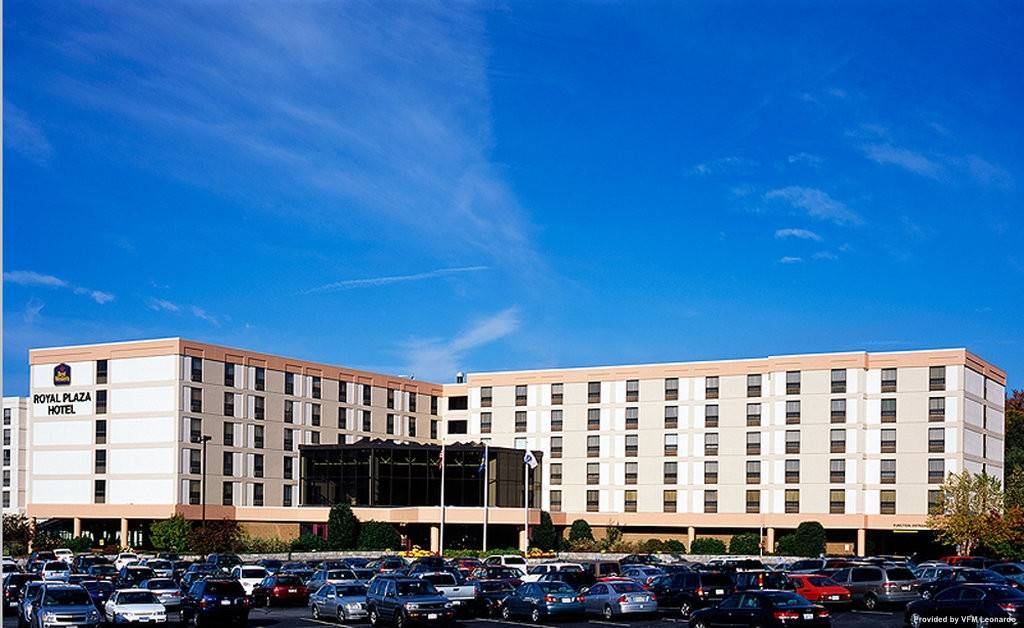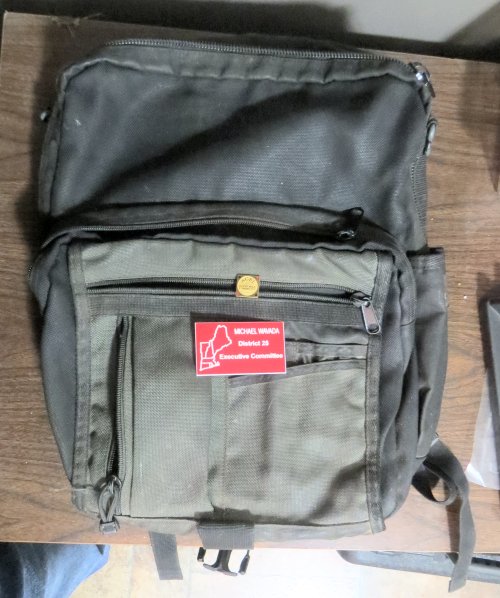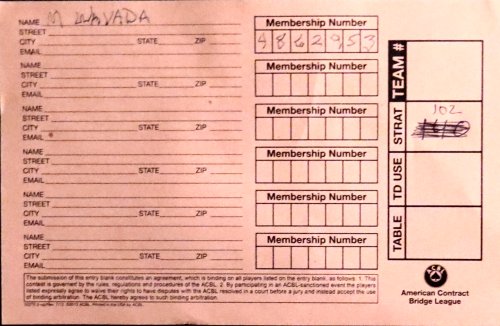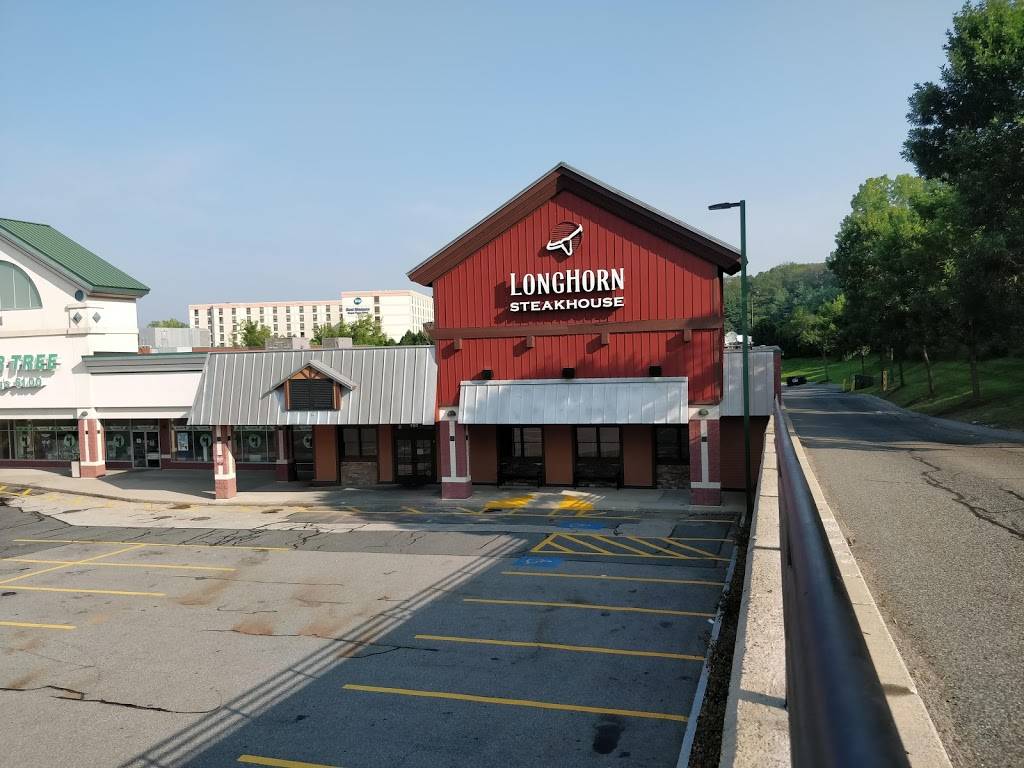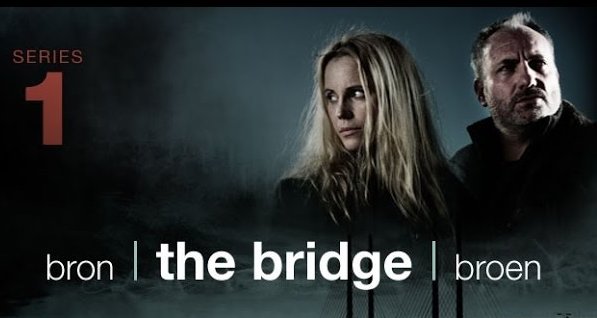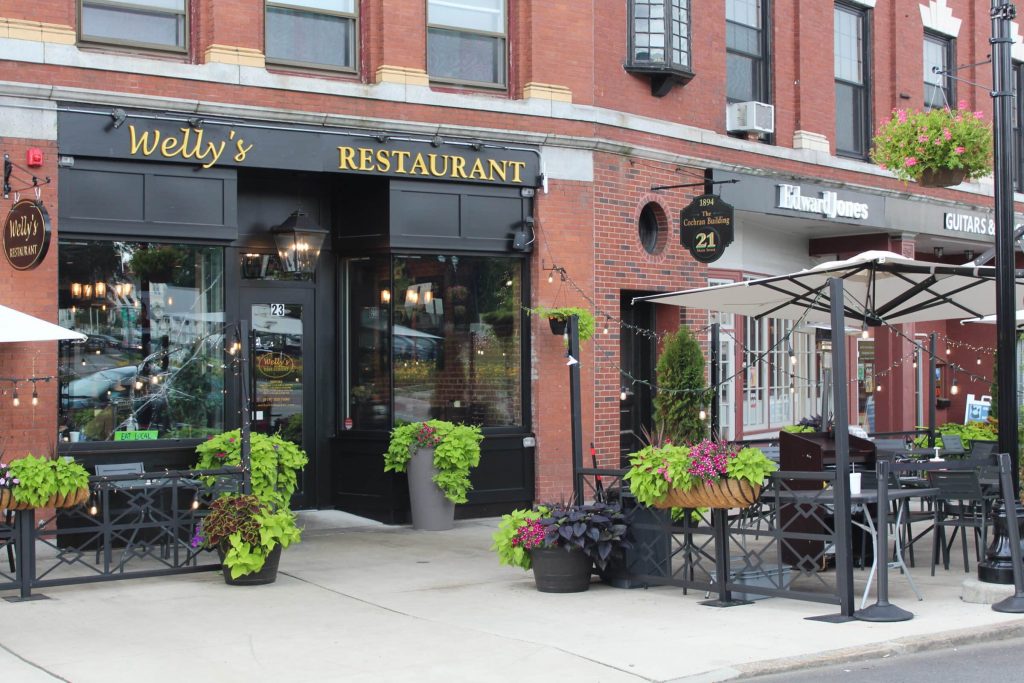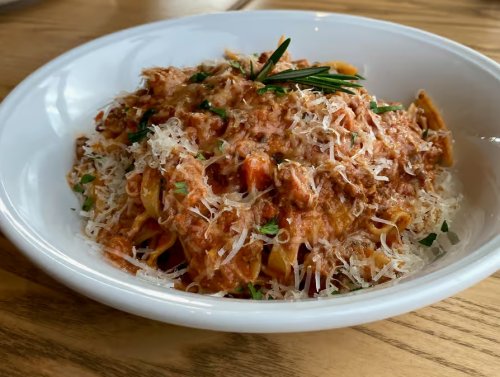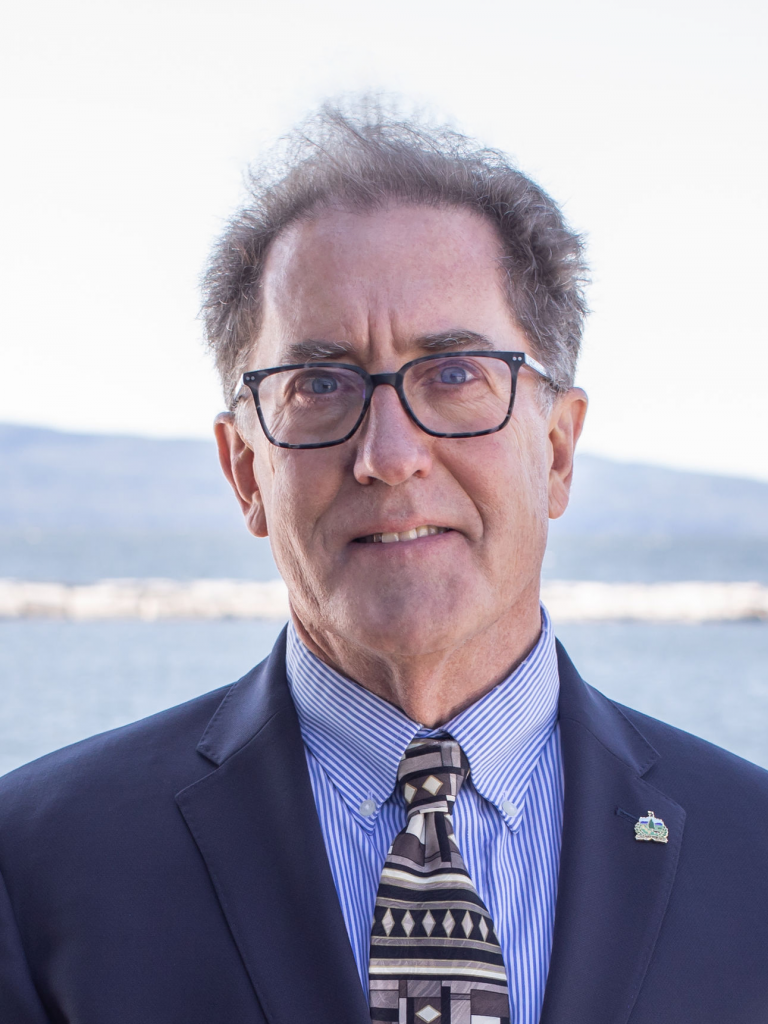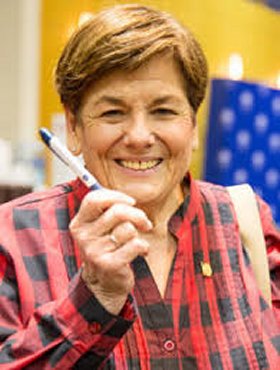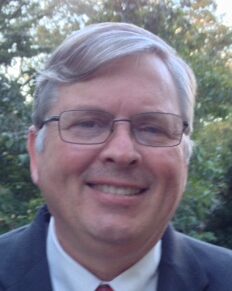Catholicism and me. Continue reading

I have been a Catholic or an ex-Catholic for all but a few days of my life. My parents arranged for me to be baptized as a Catholic as soon as it was possible. My mother and father were Catholics. Every single relative whom I met was Catholic. I attended Mass every Sunday and holy day of obligation for approximately three decades. I went to Catholic schools for twelve years; most of my teachers were Ursuline nuns or Jesuits. I was an altar boy in grade school, and a member of the Sodality in high school. I went to a state university, but I never missed Mass, even when I was out of town on vacation or a debate trip. I never missed Mass when I was in the army, working in Hartford, or living in Plymouth, MI, in the seventies. Catholicism formed me in many ways.
Catechism
Catholicism is fundamentally different from other Christian religions in at least three ways. Catholics are not educated using biblical stories, and they are not encouraged to read the Bible on their own. I never heard about Bible studies until I started associating with Protestants. Young Catholics are taught what to believe using the catechism, a thin book of fundamental questions and correct (or at least authorized) answers about God and humans. Catholic students—at least in those days—spent hours memorizing them and many more hours being drilled about them. The first two pairs in the version that we used were:
- “Q: Who made you?” “A: God made me.”
- “Q: Why did God make you?” “A: God made me to show forth his goodness and to make me happy with him in heaven.”
There were many more. I remember that Sr. Lucy’s second-grade class had an oral exam that covered eight or ten pages1 of these questions and answers. Before the test I was quite certain that I had all of the answers memorized, but I totally blanked on one of them. This failure totally crushed my spirit. I might have even cried. Sr.Lucy tried to comfort me, but at that point I was accustomed to academic success and just could not countenance my failure.
The catechism was comprehensive and coherent. It represented what Catholics believed. You could argue about other things, but contradicting anything in the catechism was, literally, heresy. For decades I assumed that other sects also had a fixed set of beliefs. When much later I participated in a group reading religious literature, I was shocked to find that the participants—al members of the same Protestant denomination—did not understand and agree upon the fundamental concepts of faith and hope. These people did not share the same religious beliefs. They just liked their minister and the other members of their flock.
To Catholics faith was agreement with the postulates of the catechism. Hope was confidence in God keeping up His/Her/Their side of the bargain. Love was respect for all of creation.
Seven Sacraments
The second identifying feature of the Catholic religion is its seven sacraments.
Other denominations baptize their members. A Catholic baptism has the primary purpose of providing absolution for “original sin”, a tarnish inherited from Adam and Eve that precludes salvation2. That explains why the ceremony is arranged by Catholic families almost immediately after birth, and why the infant has no say in the matter.
We were taught that if someone who had not been baptized—whether a solid citizen or a mass murderer—was about to die, it was your duty to baptize them. A priest was NOT required. The nuns taught us that there were several forms of baptism, some of which did not even require holy water. I remember kids arguing about whether water from the radiator of a car could be used in an emergency. The answer may have involved the percentage of antifreeze.
The sacrament that involves confessionals is called penance3. Few, if any, other denominations have meticulously prescribed methods for forgiveness of the myriad sins committed after baptism has wiped one’s slate (that is how I thought of it) clean. Some protestants (commonly called heathens by Church members) claimed that faith alone was enough, but that has always seemed transparently flawed to me. What’s faith got to do, got to do with it? You sinned; you died without absolution; you go to hell.
Cleansing the slate requires confessing one’s sins to an ordained priest. Catholic priests can withhold absolution if they are skeptical of either the penitent’s “heartfelt contrition” or the expression of a “firm purpose of amendment”. To me it made sense that the well-trained clerics were called on to make these important decisions.
Heathens often want to know what it is like to go to confession. For me the anticipation was worse than the event. No priest ever asked me to provide any sordid details, and certainly none ever withheld absolution. The “penance” prescribed could be anything, but in my experience it usually was a small number of Our Fathers and/or Hail Marys as well as “a good act of contrition”, in a prescribed format. After a few years of Catholic schools I (and everyone else whom I knew) could recite these prayers very rapidly. We used to hold races.
I never confessed any “mortal sins”, offenses that would be serious enough to merit eternal damnation. Should I have confessed my involvement with Sue while her first husband was still alive? I don’t think so. The Catholic Church did not recognize their marriage; why should I? Whether the Church would have condoned the forty years that elapsed before we were wed in a short civil wedding is a moot point. By that time I had fallen by the wayside.
Youngsters were allowed to receive the Eucharist when they reached “the age of reason”, usually in the second or third grade. That does not mean that they understand the concept of transubstantiation on which the sacrament is based. However, they were required to make a good confession before their first communion, and the two requisites for absolution demand the ability to distinguish right from wrong. By second or third grade most Catholic youngsters had a pretty good idea of what was “class participation” and what could get your knuckles rapped.
The Eucharist has always been part of the Mass. In my youth the priest lay the consecrated host on your tongue; he did not hand it to you. The priest drank a little wine, but he did not share it with the communicants.
Before receiving the consecrated host for the first time our class had a dry run. It felt like a piece of paper that wants to adhere to the tongue. It has neither of the taste nor the texture of food. I had a lot of difficulty swallowing the (unconsecrated) host the first time that a nun put one on my tongue. I don’t know why; I never experienced any subsequent difficulty.
I never really understood how confirmation fit into the sacraments4. It was supposed to make you stronger. You were allowed to pick a name; I chose Peter. The archbishop came to town. We all lined up, and he went down the line and gave each person a gentle slap on the cheek.
Almost no one has ever received all seven sacraments. One would need to be ordained as a priest (holy orders) and married (matrimony). Since women have never been allowed to be priests, half of the population was immediately excluded. A few widowers have been ordained late in life. I never asked whether priests who disclaimed their vows could be married. A vow is a vow, but there may be some wiggle room that I don’t know about.

Up to the end of the sixties the seventh sacrament was called extreme unction. “Unction” meant anointing with oil; “extreme” meant that it was reserved for terminal cases. I considered this a great name, but it has undergone several rebrandings in the last few decades. It was called last rites for a while and then the sacrament of the sick. At some point it was renamed anointing the sick.
As I understood it, the oil lubricated the pathway to heaven for someone who was deathly ill. On television it was sometimes used even when the symptoms included the termination of all bodily functions. You can never be too careful. Maybe the living soul was stuck between two non-functioning organs. Why take a chance?
Popes

The papacy is the other unique institution. One person, the Bishop of Rome, is given the lifetime occupation of administering the Church worldwide. It has worked pretty well for 2,000 years or so. In the twentieth century I was about as familiar with the popes as the average Catholic. The popes in the first fifty years of my lifetime—Pius XII, John XXIII, Paul VI, John Paul I, and John Paul II—were well respected by most Catholics. In general they did a good job directing the Church in all areas except one. The elephant in the room will be discussed below.
Several decades after I dropped out of Catholicism I conducted an incredibly detailed study of the papacy—the institution and the individuals. I discovered that the popes were quite diverse. Some were geniuses, some were greedy or vindictive, one was hen-pecked!. A fairly large number of them spent little or no time in Rome. The Holy Ghost, operating through the College of Cardinals (and a number of other diverse electorates), has demonstrated eclectic taste in pontiffs.
The illustrated book that I wrote about the popes is posted here. The story of how it came about is related in this blog entry.
The Calling
The nuns and, to a lesser extent, the Jesuits talked about “the calling”. They uniformly insisted that at some point in their lives an event of some kind occurred that demonstrated to them that their God-ordained destiny was a religious career. None of them described the nature of that event, but each one indicated that anyone who received such a calling understood that God had definitely designated his intention for them.
While I was in grade school and high school I was a devout Catholic and, at the same time, extremely arrogant. I expected to receive the calling from God, probably just after I was an all-America wide receiver at Notre Dame. I listened intently for the call. In my senior year of high school I went on a retreat for several days with the members of the Sodality at Rockhurst. The priest conducting the event emphasized that everyone should listen carefully for his calling. I did, but I heard nothing. I was quite disappointed.
Years later I gave some thoughts as to what the events that so many of my teachers interpreted as a calling could have been. If it was not the usual hormonal firestorm occurring in an unusual setting, I could not hazard a guess. Here’s a clue, however: two of the nuns who were my teachers at Queen of the Holy Rosary were Sr. Ralph and Sr. Kevin. Where did they come up with those names? They are supposed to choose the name of a saint. The following was published by the Houston Chronicle in 2005:
There are two Saint Ralphs in the Catholic hagiography: Ralph of Bourges, a ninth-century French abbot, and Ralph Crockett, a 16th-century English martyr. Compared to Saints Peter and Aquinas, the Ralphs were theological underachievers. Crockett tried to convert England to Catholicism but was hanged, drawn and quartered. Ralph of Bourges’ principal accomplishment seems to be taking part in the Synod of Meaux. Ralph, it appears, is the patron saint of mediocrity.
St. Kevin lived (allegedly for 120 years!) as a hermit in a very small cave in Ireland. This was on Wikipedia:
One of the most widely known poems of the Nobel prizewinner Seamus Heaney, ‘St Kevin and the Blackbird’, relates the story of Kevin holding out his hand with trance-like stillness while a blackbird builds a nest in it, lays eggs, the eggs hatch and the chicks fledge.
No wonder I didn’t hear anything on that retreat.
“Falling Away”
My transition from ardent Catholic to complete skeptic was a fairly sudden one. The events involved were described in this blog entry.
I must emphasize that in the twelve years that I attended Catholic schools I did not witness or even hear any rumors of any kind of questionable conduct from any teachers or administrators. Furthermore, I did not hear of any inappropriate behavior at any parish that I lived in.
One slightly peculiar event occurred in the few months that I was stationed at Seneca Army Depot in 1972. I have described it in this blog entry.
My dad once told me a story that he heard from his brother Joe, the Benedictine priest (introduced here). Evidently, when he was still in Burlington, IA, he approached the prior or the abbot or some other Catholic bigwig to complain about abusive conduct by one of the other priests. The only result was that the offender was moved to another part of the country. My uncle may have made a minor stink about this and/or threatened to make a major stink. In any case he too was transferred. His destination was as remote as is imaginable, Kelly, KS4. Imagine a small country town with a pastor who was a Benedictine monk with a masters degree in economics from the University of Chicago.
I cannot register any surprise at the Church’s response to the flood of allegations of sexual abuse by Catholic clergy. I can only think of three explanations for such behavior by a clergyman:: mental illness, possession by the devil, or simple unwillingness to resist the temptation. In any case the perp was probably called to account for his deeds. He was undoubtedly asked if he was contrite and whether he would be able to prevent recurrences. He almost certainly answered “yes” to both questions. If the bishop felt that he was sincere, he would have no choice but to provide absolution. The man’s immortal soul was at stake. The actions may have been (usually were) criminal, but they did not put anyone’s soul in jeopardy.
If the bishop was not convinced, then he would be faced with the prospect of choosing between mandating mental health assistance, initiating an exorcism, or calling the cops. All of these options would be considered disastrous by any bishop. Keep in mind that the offender had received a calling to work for the Church. He and the other clergy were the tools that the bishop was asked to deploy in order to provide eternal salvation, In my day the number of vocations was critically low and decreasing. So, why not see if the situation could be salvaged?
I don’t think that it was an official policy. Nevertheless, the bishops made the same decision almost without exception: They quietly tramsferred the perps to a different location. This would solve the problem if the subject was actually willing and able to stop his crimes, or if the new location did not provide the same temptations. This may have occasionally worked, or it may have worked long enough for either the perp to die or become unable to commit the crimes or for the bishop to die or be replaced. The other solutions mentioned above would have certainly removed one of the clergy on whom the bishop depended and generated publicity that would likely reduce vocations in the future.
Altar Boy
I served as an altar boy for two or three years. At Queen there were two Masses every weekday. One was at 6am. The other, which was attended by all of the students. was held at 8:30. The 6 o’clock mass was always a low mass, which meant that only two candles on either side of the tabernacle had to be lit by the senior server, mostly because there was no music. These Masses were also much shorter and required only two servers. Actually one would suffice in a pinch, but two looked more balanced.
Sometimes the 8:30 Masses were high Masses. That required lighting six candle that were much higher on the altar. A device6 with a long wick at the end of a brass pole is used both to light and snuff the candles. This was the one thing that required a bit of skill. If a lit wick broke off and landed on the altar cloth, there would be heck to pay.
The Mass always proceeded in the same order. The only variation was for the epistle and gospel readings and the sermon. The first two were determined by the Church’s official calendar. The sermon was determined by the priest. At the daily Mass, low or high, it was generally omitted. It was hard enough to keep hundreds of squirmy youngsters under control even when the nuns required that each leave room for his/her guardian angel on one side.
The rest of the Mass was called the “ordinary”. While I was a server it was all in Latin. To become a server you had to memorize all of the responses. Some of these, like “amen” and “et cum spiritu tuo” were easy, but the ones in the beginning were somewhat challenging. The very first response was “ad Deum qui laetificat juventutem meam.”7 Probably the reason for multiple servers at nearly all Masses was to make sure that at least one was able to say the proper response out loud.
At a high Mass the following were sung by the entire congregation: Kyrie, Gloria, Credo, Sanctus, and Agnus Dei. There were several sets of music for these. Some of them were quite elaborate. There were often hymns at other spots as well. All of these were in blue books that were available in the pews.
The servers were not asked to sing, but each had designated duties. The one on the right rang the bells to wake up parishioners that the important part was coming. The two in the middle handled the cruets that were used in the ablution section The one on the left was called “the dead end” because he (no girls!) had no special responsibilities. When they were not busy, the servers knelt8 at the foot of the altar. They got to sit during the epistle, gospel, and sermon. One of the nuns would always be on the lookout for squirming or poor posture.
The priest’s dressing room, called the sacristy was on the left (from the point of view of the congregants) of the altar. Priests wore (at a minimum) a white chasuble and cincture beneath the vestments, which varied in color depending on the type of Mass and the calendar. Green was the most common. The servers’ room was on the right. They wore white short-sleeve surplices over black cassocks. There were about ten of each to choose from, first come first serve. I like to get there early. In the eighth grade I was one of the tallest, and only two or three went down to my ankles. Both the priest and the servers were fully dressed before donning their religious attire.
It was considered an honor to be an altar boy. In retrospect I find it amazing that my mom was willing to drive me to the early service. She was supportive of almost anything that I wanted to undertake.
Mackerel Snappers
In the Wavada household meat was NEVER served on Friday. It was likewise absent from my grade and high schools. My recollection is that I had cereal for breakfast and cheese sandwiches for lunch. There was no fresh lobster in the Kansas City area. The only offerings for supper that I remember were spicy boiled shrimp, fried catfish, fish sticks, and tuna and noodle casserole. The last was by far my favorite of those four. However, I don’t think that I complained much. My mother was a very good cook.
Why did we (and nearly every other Catholic family) deliberately refrain from eating meat on Fridays? I don’t think that it was actually decreed by the Church in the way that attending Mass was. That was derived from one of the Ten Commandments. The fasting was just one example of the “offer it up” approach to life that was drummed into us. Whenever you were disappointed, upset, or frustrated, a nun or priest would tell you to offer the situation up to God. Friday was chosen in memory of Good Friday, on which Jesus suffered so much for the rest of us.
Catholics were also encouraged to give up something for Lent, the forty-day period before Easter. Most of the kids whom I knew gave up candy or nothing. Since I did not have a sweet tooth, that would not have been much of a sacrifice for me. I might have tried to do without Coke or potato chips, but I doubt that I had the willpower to endure forty days without them.
Prayers
Praying in the Catholic Church is largely a matter of rote. For example, saying the rosary consisted of saying 53 Hail Marys and a handful of Our Fathers and Glory Bes at a supersonic pace while cogitating about one of three sets of “mysteries”. My family recited the same prayer, which we called “Grace”, before every evening meal. At QHRS my vague recollection was that we all stood up at our desks and recited the same prayer right before lunch. My mother may have made me say it before breakfast. Here is what we said:
Bless us, O Lord, and these Thy gifts, which we are about to receive from Thy bounty through Christ, our Lord. Amen.
I never noticed before that there were two Lords in this prayer. One apparently owns the bounty; the other distributes it. If I had asked about this, I wonder what the nuns would have said.
Here is what I think about prayers with a specific purpose—asking for something, thanking for something, etc. If God is all-powerful, then He/She/They is also omniscient and therefore knows about the situation. Why would God care about whether someone debased himself to obtain something or express an emotion? Surely, if God is ever willing to tamper with nature, the decision would not be induced by nagging. Similarly, why would God care about whether someone was willing to forgo meat on Friday?
To me it is a lot easier to understand why the Church and its clergy would care about enforcing discipline than to think of a reason why an omniscient and omnipotent Being would be impressed by prayers or self-imposed suffering. I remember thinking how strange it was when both Argentina and Great Britain fought over the Falkland Islands. Both countries insisted that God was on their side in the conflict. I wonder if there were many conversions in Argentina from Catholicism to Anglicanism when the Brits prevailed.
Saints and Miracles
A few other religions have saints, dead people who are purportedly now in heaven. In the Roman and Greek Orthodox Churches they are a big deal. Cults that worship saints—especially Mary, Jesus’s mother—have developed over the years. “Queen of the Holy Rosary”, the name of our parish, was an example of the strange twists that the cults can take. Mary had nothing to do with the rosary. It was invented many years later. I don’t know if there is a singular “holy rosary” somewhere, but the only way that Mary is associated with the beads is the fact that the Hail Mary prayer is recited fifty-three times.
As far as I was concerned the popes decided—using a complicated legal process that involved the assessment of miracles and a “devil’s advocate”—who was a saint. Since the pope was infallible, that was it; they were in. Later I learned that during the first few hundred years of Christianity, lists of martyrs and other prominent Christians were created. At some point all of the people on the list were referred to as saints even though the process of getting on one of these lists was much less sophisticated than the rigorous process with which I was familiar.
In my day St. Christopher was one of the most popular of all saints. Many Catholics carried a medal of the saint. It supposedly provided protection against accidents. There were many contradictory stories about St. Christopher, but the evidence that he was a real person (as opposed to a fable or a composite of different people) was scant. In 1970, the year that I graduated from college, the Church removed him from the calendar, but he was still worshiped as a saint in some places. For that matter Charlemagne, who routinely executed thousands of people whom he captured, wass widely considered a saint and venerated as such. Although the emperor was never canonized, his statue was placed prominently in the narthex of St. Peter’s Basilica.
I think that my mom had a St. Christopher medal in her Oldsmobile 88. I could be wrong.
To be confirmed as a saint you had to have several miracles attributed to you. I firmly believed that there were thousands of documented miracles associated with these holy people. I took it as a “given”, not worth thinking about any more.
The nuns and priests that I encountered did not spend a lot of time discussing the saints. The one story that I remember vividly featured St. Dominic Savio and his biographer, Don Bosco. The saint died when he was only fifteen. Evidently he was extremely intelligent and absolutely devoted to becoming a saint. For a while I was inspired by his attitude, but eventually I reverted to my previous philosophy of doing whatever I could get away with.
I am not sure which miracles Pope Pius XII (discussed in great detail here) attributed to little Dominic. By 1978, the beginning of the pontificate of Pope John Paul II, advancements in science had made obsolesced the standards of evidence previously used for verification of miracles. J2P2 canonized approximately 480 people, probably more than all of his predecessors combined. What process did he use? He just announced every so often that the list of saints was longer.
Much later I did a little research in the area of hagiography. I concluded that anyone who lived before the Renaissance and is considered a saint should be treated with suspicion. Some almost certainly were fabrications, others were probably composites of two or more stories, and some who were real people were rascals or worse..
Sacred Objects
The Catholic Church has for a very long time made use of statues, paintings, and relics. The duomo in Milan has over 3,400 statues, including a very large number on its roof and a very famous one in the church of a flayed St. Bartholomew carrying his own skin. The altar in every church contains a blessed relic—usually a fragment of a bone alleged to be from a saint.
I remember that my class had a raffle of a few such tokens one year. Kids bought raffle tickets. First prize was a statue of Jesus that was perhaps fifteen inches in height. The secondary prizes were far inferior, probably “holy cards” with a picture of a saint or a miracle and some explanatory text on the back. For some reason I really wanted that statue. My only source of income was my allowance, which, if memory serves, was twenty-five cents per week. However, I spent almost nothing. I bought quite a few baseball cards over the years, but otherwise I was miserly.
On the day of the auction I brought all of my money to school and purchased more than half of the total tickets. Sure enough, I won the statue, but I did not win any of the other prizes. In retrospect I should have bought no tickets. After the auction I could have made the winner an offer he/she could not refuse.
I don’t remember what happened to that statue. I don’t think that it survived the move from Prairie Village to Leawood. For the most part my family did not take part in the iconography that was prevalent in Catholic homes in the fifties and sixties. However, I do remember wearing one religious item for quite a few years, a Brown Scapular.
The scapular was composed of two cloth rectangular pieces connect by two straps. One piece went on the front and one on the back. It was inspired by the habit of the Carmelites, which was, or course, much larger. The ones that I saw were woolen. Evidently, that requirement was dropped at some point.
You can’t just buy scapulars. I don’t remember this happening, but at some point the older kids at QHRS must have been “enrolled”. Part of the admonition is “Wear it as a sign of her [i.e., Mary’s] protection and of belonging to the Family of Carmel.” Furthermore, “whoever receives the scapular becomes a member of the order and pledges him/herself to live according to its spirituality in accordance with the characteristics of his/her state in life.”
Although it has never officially been part of the Church’s teaching, the Brown Scapular has for a very long time been linked with the “Sabbatine Privilege”, which promises that the wearer will be released by Our Lady of Mt. Carmel10 from Purgatory on the first Saturday after death. This was great! Purgatory was the place to which people were sent if they died with venial sins that were not absolved. Every “impure thought” was such a sin. Practically every adolescent who died would be forced to spend time—an hour, a year, a millennium?—roasting in purgatory. If, however, he had the Sabbatine Privilege, his time there would be less than a week. If he got in a car crash after partying hard on a Friday evening, he might go straight to heaven as long as he was still wearing his Brown Scapular. “So long, losers!”
My scapular had several pieces of cloth in each of the two sections. That is all that I remember of it. I don’t remember when I stopped wearing it. I certainly did not wear it in Ann Arbor.
There also was a version of the scapular that was a medal.
Big Events
The two big events on the Church’s calendar were, of course, Christmas and Easter. I remember being surprised that I was chosen for the boy’s choir as an eighth grader. We sang “Oh, Holy Night” at the midnight Mass.
For Easter I was chosen in the eighth grade to serve either at the high Mass on Maundy Thursday or Easter Sunday. I do not remember which.
1. This is almost certainly an exaggeration, but I remember quite clearly that this was a momentous event. Maybe it was preparation for First Communion or Confirmation. The most famous version is the Baltimore Catechism, which has been posted here.
2. In my day babies who died unbaptized supposedly went to a place called Limbo. In 2007 the Church waffled a bit on this and concluded that there is hope that God will do what humans were unable to do, namely baptize them himself. Don’t try to visualize this.
3. For some reason it seems to be called “Penance and Reconciliation” in 2024.
4. I wonder if it was added later to bring the list to seven. Most religious lists seem to have three or seven items. I might be on to something. The Encyclopedia Britannica The number of sacraments also varied in the early church, sometimes including as many as 10 or 12. In the sixteenth century the Council of Trent specified the list that we learned.
5. My experiences with Fr. Joe after he was sent to Kelly are posted here.
6. I expected to discover a Latin name for the pole, but it is merely called a candle lighter.
7. I discovered in my Latin class that some heathens might have been able to read this, but they would not have understood us when we said it. They had a markedly different way of pronouncing some letters. They rendered Caesar’s famous dictum “Veni; Vidi; Vici” as “WAY knee WEE dee WEE kee”.
8. What a wonderful thing it was to still have cartilage!
9.In my day the three sets were the Joyful Mysteries, the Sorrowful Mysteries, and the Glorious Mysteries. They told the story of Mary and Jesus in chronological order. Each had ten “decades”, one for each group of ten beads. I had never heard of the Luminous Mysteries, which are apparently prayed on Thursdays. All of these have been explained in detail on the Internet here.
10. I am 99 percent certain that “Our Lady of Mt. Carmel” is the same as Mary, the mother of Jesus. For some reason she has dozens of titles, each of which emphasizes something different about her. Incidentally, the Church has never officially preached that Mary shows up and checks for slightly charred scapulars every Saturday. However, it dies claim that Mary never died. She was “assumed” into heaven. If an archeologist ever makes a case that Mary’s tomb has been found, all Catholics must immediately denounce him/her/them as a heretic.






























